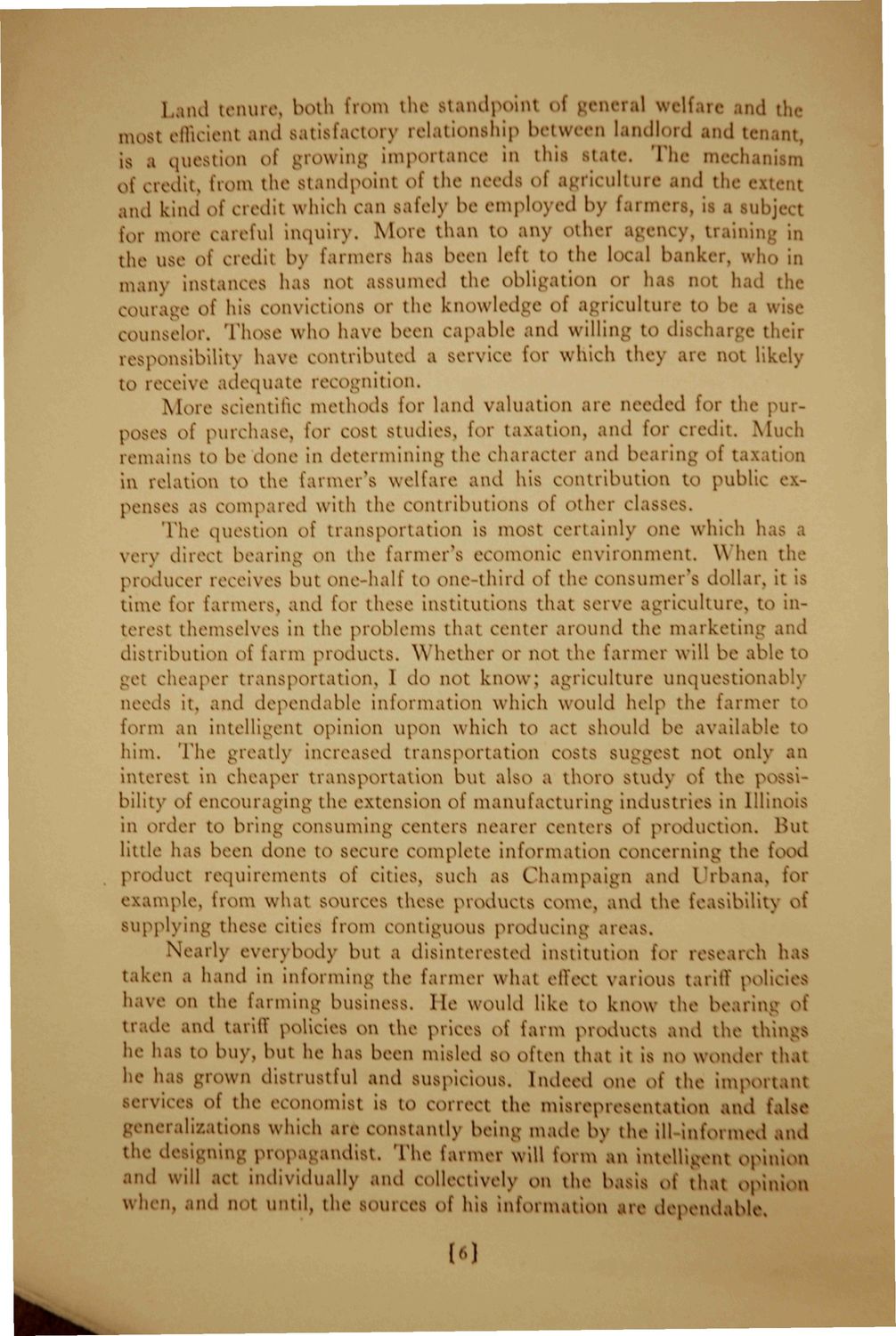Caption: Booklet - Agricultural College and Experiment Station (1924)
This is a reduced-resolution page image for fast online browsing.

EXTRACTED TEXT FROM PAGE:
\.A\K\ tenure, both from the standi ml of general u i t| most efficient and Batisfactorj relationship between landlord and I is a question of growing inq i t a i u e in this ite. The in hanisin of credit, bom the standpoint of the needs of riculture ind th< \\ and kind of credit which can safely be employed by farmei i i subj< t for mote careful inquiry. Moi than to any other agency, training in the use of credit b\ farmers has been left to the local l nl r, who in many instances has not assumed the obligation or has not had th< courage of his convictions or the knowledge of agricultui to be a wii their counselor. Those who have been capable and willing to dischar responsibility have contributed a service for which they an not likelj to receive adequate recognition. More scientific methods for land valuation arc needed for the purposes of purchase, for cost studies, for taxation, and for credit. Much remains to be done in determining the character and bearing of ta> »n in relation to the farmer's welfare and his contribution to public expenses as compared with the contributions of other classes. The question of transportation is most certainly one which 1 very direct bearing on the farmer's ecomonic environment. \\ hen th producer receives but one-half to one-third of the consumer's dollar, it i time for farmers, and for these institutions that serve agriculture, to interest themselves in the problems that center around the marketin ai d distribution of faun products. Whether or not the farmer will be able to et cheaper transportation, 1 do not know; agriculture unquestionabl; needs it, and dependable information which would help the farmer t < form an intelligent opinion upon which to act should be available to him. The greatly increased transportation costs su jest not only an interest in cheaper transportation but also a thoro Study of the possibility of encouraging the extension of manufacturing industries in Illinois in order to bring consuming centers nearer centers of production. But little has been done to secure complete information concerning the food product requirements of cities, such as Champaign and T i b a n a , for example, from what sources these products come, and the feasibility of supplying these cities from contiguous producing ai as. Nearly everybody but a disinterested institution for research has taken a hand in informing the farmer what effect various tariff policies have on the farming business. He would like to know the bearing of trade and tariff policies on the prices of farm products and the things he has to buy, but he has been misled so often that it is no wonder that he has g] \vn distrustful and suspicious. Indeed one of the important •t vices of the economist is to con eel the misrepresentation and fals Mierali/.ations which are constantly bein made by the ill inform md the designing propa mdist. T h e farmer will lonu AW intelli; i nt opinion ind will act individually and ( ti\el\ o\\ the basis of that opin n when, and not until, the souices ol his Information are dependable,
|